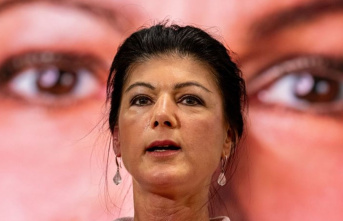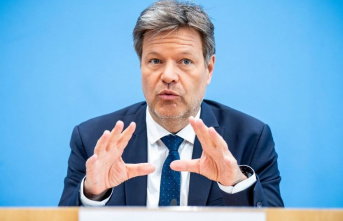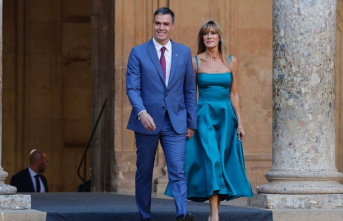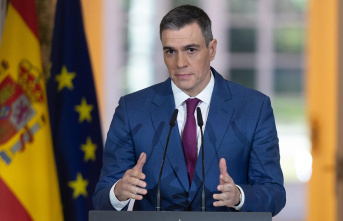The heads of government of the federal states are meeting in Berlin today to discuss, among other things, the distribution of costs arising from the accommodation and care of refugees. The Prime Ministers' Conference (MPK) takes place without the federal government. A federal-state summit with Chancellor Olaf Scholz (SPD) on relevant financing issues is only planned for May 10th.
Other topics of the MPK, which is currently chaired by Lower Saxony's Prime Minister Stephan Weil (SPD), include the development of energy prices and the acceleration of planning and approval procedures. An overview:
refugees
Both the SPD and the Union are calling for the federal government to provide more money for taking in refugees. "We believe that the federal government's previous services are really inadequate," said Weil in the ARD "Morgenmagazin". In Lower Saxony, the federal government bears about a sixth of the costs of the state and the municipalities. "That's far too low a rate, which I think needs to be increased significantly," Weil said. "In my view, a fifty-fifty rule would be fair."
Chancellor Olaf Scholz (SPD) emphasizes that the federal government already bears the "largest part" of the costs for accommodation and meals for refugees. "The federal government, together with the federal states and municipalities, will continue to live up to its responsibility," said the SPD politician in a government statement in the Bundestag.
The federal government paid states and municipalities more than 3.5 billion euros last year, and this year another 2.75 billion should flow, according to Scholz. In addition, Ukrainian refugees could receive citizen benefits. "This means that the federal government bears the vast majority of the costs for accommodation and meals," said Scholz.
North Rhine-Westphalia's Prime Minister Hendrik Wüst (CDU) is also calling for more European solidarity in the distribution of refugees. The cities and municipalities in North Rhine-Westphalia are at the limit when it comes to accommodating refugees, he said on WDR5. "The place is simply occupied." The mayors in the country are currently sending numerous "emergency signals" that the integration capacity is also exhausted. "We mustn't let it get to the point where the mood changes," added Wüst in the ARD "Morgenmagazin". NRW alone took in 226,000 people from Ukraine last year, and there are currently many refugees from Syria, Turkey and Afghanistan.
Energy
SPD politician Weil now sees great progress on the dominant topic of the federal-state meetings last fall and winter. The previous measures to relieve the energy crisis would not have failed to have an effect. "This applies both to the energy supply sector and to energy prices, which have calmed down significantly," said the Lower Saxon. The task now is to advance the energy transition further without overburdening citizens financially.
Infrastructure
The implementation of important infrastructure projects, such as the expansion of wind power for the energy transition, is not happening fast enough in many countries. At the beginning of February, for example, Weil proposed that permits for the construction of wind turbines should be automatically granted if the deadline for the procedure is exceeded. In front of the MPK he now said: "We are too complicated and too slow for many procedures. We have to become simpler and faster."
His co-chairman Wüst said that the federal states are dependent on the cooperation of the federal government due to federal law. "The states have done their homework, their proposals are on the table," said the CDU politician. "And although time is short, the federal government continues to let valuable time pass. Germany must become faster," said Wüst. "It is ironic that the federal government is stepping on the brakes on this issue."
natural hazards insurance
Last year, the federal states had asked the federal government to draw up a specific regulation for compulsory insurance against natural hazards. However, the federal government advocated regulations at state level. Baden-Württemberg and North Rhine-Westphalia are now reportedly planning a new push with an initiative for the Bundesrat. The MPK will also deal with the topic again.
media
The state leaders could appoint a successor to Bavaria's Prime Minister Markus Söder (CSU) on the ZDF board of directors. The CSU politician had resigned from his position on the control committee in December because of "extensive obligations in Bavaria".











